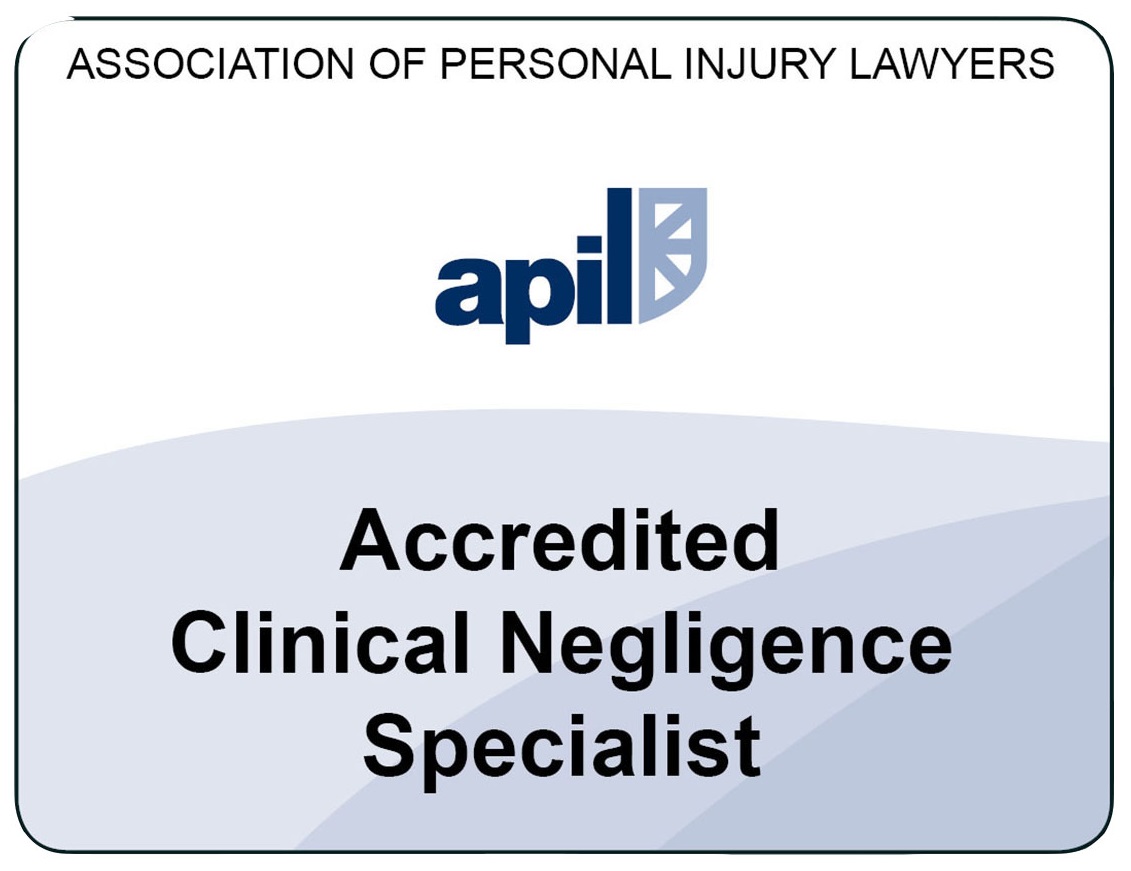Cancer misdiagnosis claims
If something goes wrong with your cancer treatment, or there is a cancer misdiagnosis, you might have a compensation claim for medical negligence.

Legal support for Cancer misdiagnosis and delayed diagnosis
The key to successful cancer treatment is often in catching the disease early. It can be hard to spot, but there are various signs and symptoms which doctors should investigate quickly. If your cancer is misdiagnosed, or you suffer a delayed cancer diagnosis, the consequences can be devastating. If you feel your treatment was below standard, our medical negligence specialists can help you move forward.
Types of cancer medical negligence claims
There are a range of ways in which mistakes can be made, including:
- misdiagnosed cancer
- delayed cancer diagnosis
- delayed referral to a specialist or to the incorrect specialist
- delayed investigation following tests for cancer
- misinterpretation of a biopsy for cancer
- misinterpretation of a scan for cancer
- misinterpretation of a smear for cancer
- delayed treatment of cancer or failure to provide the correct treatment
Over the years, our specialist medical negligence solicitors have successfully advised on claims relating to many different types of cancer, including:
- blood cancer claims
- bowel cancer claims
- brain tumour claims
- breast cancer claims
- cervical cancer claims
- endometrial cancer claims
- lung cancer claims
- ovarian cancer claims
- prostate cancer claims
- skin cancer claims
- claims for tumours of the throat, neck, nose and sinuses
How a compensation claim can help
You may feel very worried about the future for yourself and your family. You could be entitled to financial compensation which can help to take the pressure off at a very stressful time. Plus, you may have lasting complications, require ongoing treatment or need additional surgery in the future. Financial compensation could help provide security and stability for the future, including provision for your care requirements.
Making a claim: No win, no fee
We work on a no win, no fee basis, so there's no need to worry about costs. Plus, our specialist solicitors provide an initial free assessment of your claim.
Come in for a free, confidential, no obligation chat, or fill out our enquiry form and we will let you know how we can help. We can also visit you at home if you wish.
Our medical negligence lawyers are based in:
- Cambridgeshire: Cambridge
- Essex: Brentwood, Chelmsford and Saffron Walden
- Hertfordshire: Bishop's Stortford and Royston
But we can help you wherever you are in England and Wales.
Cancer misdiagnosis FAQ's
If you think you may have a medical negligence claim it is important to contact us as soon as possible. If, following our investigation, we consider that there is a strong enough case to bring a claim we will arrange a meeting with you to discuss funding the claim and to take a witness statement.
Once we have all the medical records, we will instruct independent experts to prepare detailed reports into the care you received; these will form the basis of the case. We will gather evidence as to the damage you have suffered and the impact this has already had on your life, and may continue to have into the future. We always seek to conclude cases without the need to go to Court where possible, in order to reduce the stress on you and the time taken to reach a resolution.
Different types of cancer have different symptoms. However, there are certain warning signs that GPs should recognise and act upon (often by referring the patient to a specialist).
Examples of common symptoms include:
- Fast growing lumps
- A persistent cough for more than three weeks, chest pain and breathlessness
- Changes in bowel habits, such as seeing blood in your stools and experiencing consistent bloating or diarrhoea/constipation
- Changing appearance of moles in terms of shape, size and colour
- Sudden weight loss without another reason.
Many types of cancer can display symptoms which are similar to other conditions which are not cancerous. Unfortunately, this can result in the misdiagnosis of cancer.
Examples include:
· Breast cancer – can be confused with benign lumps and other inflammatory breast conditions
· Bowel cancer – can be mistaken for conditions such as irritable bowel syndrome (IBS)
· Lung cancer – can be confused with other infections such as pneumonia or bronchitis
· Pancreatic cancer – can be mistaken as pancreatitis (i.e. an inflammatory disease).
If you've lost a family member due to a delayed cancer diagnosis, our top-tier legal team can assist you in the following ways:
- Pursuing compensation to address their pain and suffering, cover financial losses resulting from their passing, and handle funeral expenses.
- Representing you during any inquest proceedings.
- Facilitating your quest for answers and an apology you deserve from those accountable.
You may be eligible to file a claim if you are the spouse or child of the deceased individual. Additionally, we can guide you through the process if you are the parent of a child under 18 or were financially reliant on the deceased person. Generally, there is a three-year window from the date of death to initiate a claim. If negligence was discovered through a post-mortem examination, you have three years from the date of discovering these findings. Further information on time limits is available.
Furthermore, our legal team can assist you in obtaining a statutory bereavement award, which amounts to a fixed sum of £15,120 and is payable in cases of wrongful death. This award is accessible to spouses, civil partners, or parents (if the deceased was under 18 years old).
The family of the deceased need to apply for a Grant of Probate which is issued by the local Probate Registry.
If the deceased did not leave a will, the person granted Probate is called an ‘Administrator’. However, if a will is in place, the person is called an ‘Executor’ instead. Regardless of the title, both an ‘Administrator’ and an ‘Executor’ can pursue claims on behalf of all Dependants of the deceased within the relevant Limitation period.
In most cases, there is a three-year time limit for bringing a medical negligence claim. The three years begins from the date of the negligence or from the date that the patient should have known that the injury was or could reasonably be linked to the original negligence.
However, in the case of a child in England and Wales, the three years begins on their 18th birthday. Therefore, a claim must be made before they reach the age of 21 years old.
A gynaecology claim can be very distressing and we are here to help.
Healthcare professionals must be able to detect early warning signs of cervical or gynaecological cancer. Examples of possible negligence claims include, failing to:
- Recognise abnormal cells from a cervical smear test
- Detect and treat dyskariosis prior to it developing into cervical cancer
- Promptly react to symptoms, for example inter-menstrual and post-coital bleeding
- Refer patients for appropriate smear tests.
Other common examples of potential gynaecology claims include:
- Use of the incorrect embryos during IVF treatment
- Failure by the surgeon to recognise damage to the bladder or bowel during hysterectomy surgery
- An instrument negligently being left inside a patient following a caesarean section.
Talk to an expert
-

Megan Reckless
Paralegal, Medical Negligence
Cambridge office
Meet Megan -

Isobel Foenander
Senior Associate, Medical Negligence
Bishop's Stortford office
Meet Isobel -

Natalie Pibworth
Senior Associate, Medical Negligence
Chelmsford office
Meet Natalie -

Rachel Benton
Senior Associate, Medical Negligence
Cambridge office
Meet Rachel






